|
Shepherds of Christ |
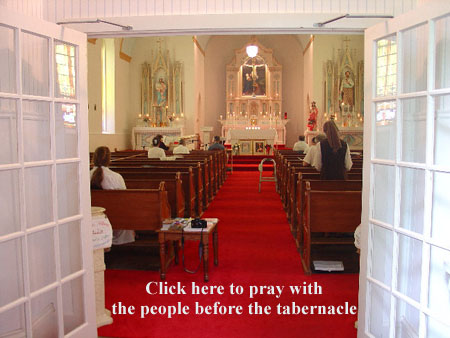 |
May 24, 2011
May 25th Holy Spirit Novena
Scripture selection is Day 9 Period I.The Novena Rosary Mysteries
for May 25th are Joyful.
$10.00 plus shipping
1-888-211-3041
1-812-273-8405
The Florida Book Store


May 24, 2011
R. Love doesn't die —
Jesus showed us He died on the
cross loving and
He rose on the 3rd day —
All the memories of love don't
come to an end — they are
memories of our heart —
We pray for strained relationships
that might end and pray in
love for them —
Children grow up and moms and
dads remember little ones
and memories —
We continue to love the person
God created even if the
relationship ends — we pray
for them —
We love because God gave us
each other to love and to share
life and we are part of each
others lives now and the past is
part of our life.
We heal by praying, loving
and forgiving and being
grateful for that person
God brought into our
life to learn and love
to help and be helped —
God help me to be thankful —
God help me to love and to be
one with all You made.
Jesus: I have called you by name —
The Father created you uniquely special
From Response to God's Love by Fr. Edward Carter, S.J.
The Christian's Personal Uniqueness (excerpt)
Because of the uniqueness of each Christian's existence, he or she presents Christ with a unique opportunity. Each Christian has the vocation to offer Christ his or her humanity so that Jesus can re-incarnate himself in a new way. Jesus wants to continue his redemptive work through the not-to-be-repeated newness that is each Christian's uniqueness. To the extent that an individual Christian offers his or her humanity to Jesus, he or she has a unique opportunity to continue the redemption—an opportunity that no one else can offer him or her. Likewise, to the extent that an individual Christian fails to offer his or her humanity to Christ, Jesus loses the opportunity that is this Christian's uniqueness.
Each of us, consequently, no matter what his or her occupation or status in life might be, has both the great privilege and the great responsibility to properly utilize his or her life according to God's Christic design. No one else can fulfill your unique mission, and, in turn, you cannot accomplish the unique mission of another. At times we can become somewhat fearful or anxious about the task that God has entrusted to us as we more deeply realize what it demands. ...
At this point, however, many will object that the above examples highlight the lives of persons who have achieved outstanding recognition in the external order of things and have commanded great public attention. People who voice this objection often say that their own lives are so mundane, so hidden, so incapable of making headlines. Surely, they continue, this rather too ordinary kind of life makes little difference to Christ, to the Church, and to the world. Surely it does not much matter whether a person living this kind of existence fulfills his or her God-given mission. At first glance, many of us would tend to agree with this reasoning, a reasoning that is really the exact opposite temptation of what we considered when we likened ourselves to Jeremiah. In that context there was a question of being tempted to do nothing because we feared the greatness to which we were called; in the present context, however, it is a question of being tempted to do nothing because we think we really have nothing to contribute. Yet, as we begin to reflect in mature faith, we soon see the fallacy of this objection. We realize that great external accomplishments or a life that attracts public attention do not, in and of themselves, make that life great and truly worthwhile. If a Christian life that is characterized by notable external achievement is truly great and meaningful for mankind, we know that it is so because the external achievement has sprung forth from an attitude of deep faith, hope, and love. This, then, is the ultimate answer to the above objection—every Christian's life, no matter how ordinary it might be in its external framework, can be tremendously important and can make an outstanding contribution toward the work of ongoing redemption as long as it is increasingly consistent with God's will.
end of excerpt
R. In the Our Father it says
"... Forgive us our trespasses as we
forgive those who trespass against us."
What we have in us is lots of memories —
Good memories are good —
When people hurt us —
we have to realize that God gives us
love —
God is the source of love —
If we have to grieve a loss —
eventually we have to bounce back —
or we deprive the world of the
gift we are to this world —
Angry hearts make angry people and they can look
at all they did in anger — rather than
remembering all the good times, the love,
the reason why they stayed —
Instead we have to remember in truth how
it really was, not create a case to hide
anger of our own that could not be
tolerated, jealousies, possessiveness —
Fr. Carter calls it trying to make others
slavishly dependent —
Love given — times spent — friends loved
are part of our past — we still want
to see things how they were and not create
an angry case against somebody we loved —
We need to forgive and continue to pray for
their union with God and if it is over — then
we pray for them —
When our hearts are full of anger — we are depriving
the world of this unique contribution God the Father
wants us to give to the world through our
unique humanity —
"God does not make junk"
I have seen this on a poster —
God made us beautiful — God made us to love —
to serve — to give —
We will suffer —
Loving is a sacrifice —
Jesus showed us this —
Jesus showed us He suffered and died so we
can share His life —
Life is in Him —
To have peace inside we beg God to help our
heart to be like His —
Song: Give Me Your Heart, Oh Jesus
R. Waiting —
Doing God's will —
Loving —
Matthew 22: 36-40
'Master, which is the greatest commandment of the Law?' Jesus said to him, 'You must love the Lord your God with all your heart, with all your soul, and with all your mind. This is the greatest and the first commandment. The second resembles it: You must love your neighbour as yourself. On these two commandments hang the whole Law, and the Prophets too.'
R. Our relationships with each other are unique —
The more our uniqueness comes as God wants in
His service — the more we become like
the ideal self God created — the more we
put on Christ and
contribute to this world, our brothers
as Christ lives in us —
The mystery of love — is love keeps on giving —
love doesn't die and turn bitter —
Love, loves the sinner —
Love for God and others compels us to be constantly
changing ourselves to be more and more
like Jesus — to love and not to count the
cost —
to give as God has called us to give uniquely
as only we can give —
Love gives —
Jesus showed us how to give —
Jesus showed us His unfathomless love —
Jesus gives us His letters of love for the hungry
world
 Blue Book I |
 Blue Book II |
 Blue Book III |
 Blue Book 4 |
 Blue Book 5 |
 Blue Book 6A |
Blue Book 6B |
R. True love doesn't die - ever —
Love gives
Love forgives —
Love prays for the world —
Love prays for people of our past —
Being like the Heart of Christ means we
give to help each other
we give to help build His Kingdom
We give to serve God
We give to love God
We give to build His Kingdom —
We love because He first loved us —
The purpose of the Shepherds of Christ is to
spread the love of the Sacred Heart and
devotion to it to the world —
To witness in one's vocation to this love of the Sacred Heart —
To spread prayer chapters all over the world
praying for the priests, the Church and
the world —
To spread the Blue Books
To tell people about the Mass Book
To pray during 8 days of retreat, the Sidney
Rosaries and daily —
To spread the school rosary program —
To spread the consecration to school, church
and home —
Fr. Carter made me set up the Apostles Manual
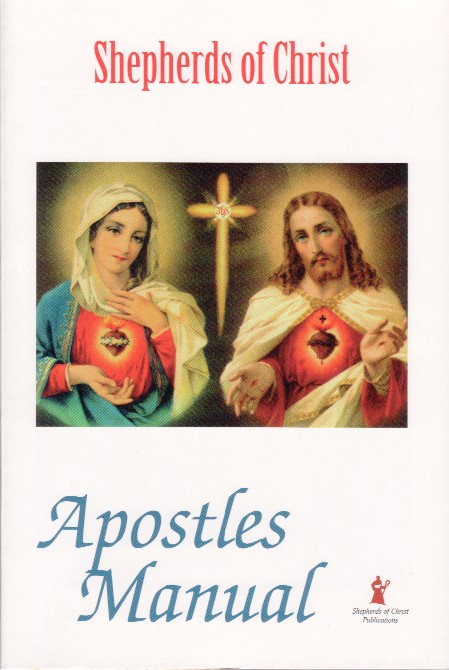
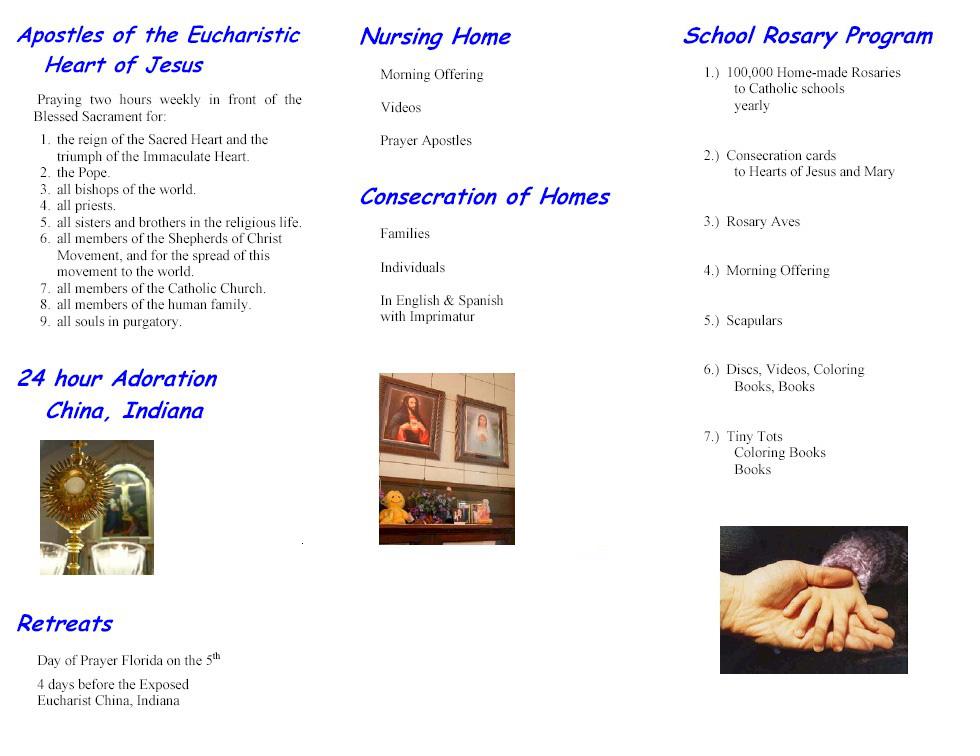
R. Love gives —
God called us to this vocation —
It is a privilege —
Genesis 3: 19
By the sweat of your face
will you earn your food,
until you return to the ground,
as you were taken from it.
For dust you are
and to dust you shall return.’
R. I went in the 'Cry Room' in a church to
pray and read because I wanted the light —
I was locked in and couldn't
get out — I had no cell phone —
I saw the tabernacle through the glass and
knew I was in a good place — finally I realized
another door and got out, but I had knocked
on the window hoping someone would come
and rescue me —
God is always sending someone to us
to help us — We may rebel against our vocation —
against others who God sends to tell us
things that need to change because we are
hurting ourselves and the body of Christ —
not making that unique contribution God the Father
created us for — seeing the big picture —
If we have the attitude we were made
perfect and we need not change — we are
overlooking the evil side in all of us because
of original sin — even when we are baptized
we still have affects of our wounded
human nature from original sin —
When we overlook anger and jealousy and envy,
possessiveness, control, seeking dominance
for dominance sake, lust, etc. —
we are like I felt in the locked cry room —
I felt as if there was no way to get out —
We can be pulled toward grace — God's life in us —
We can be pulled toward rebelling against God's
will for us and choose self-centered - unloving ways —

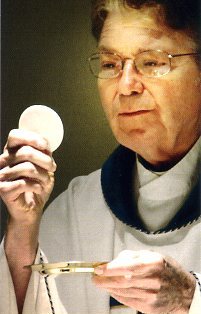
R. Fr. McCarthy had the children's Mass at St. Ignatius —
The lights were out because of last night's storm —
no lights in the bathroom
no speakers
a generator and candles in the church
about 1000 children and adults in the Church —
He said in the seminary there was a chemistry
lab and it was blown up —
He said to the children — summer vacation can
be a lot of freedom —
we don't want to blow it —
We have freedom to enjoy and grow in the
world this summer and to make it good —
There are new and different things to learn
in the chemistry lab —
Think of the summer as new and different
things to learn, with this freedom,
all summer —
as an experience in life —
He said
(1) pray every day
morning
night — examination of conscience
(2) help your mom and dad at home
(3) be with your parents a little too —
watch TV
(4) play good things with your friends
(5) watch a TV show that is good for you
(6) read a good book
Have a good summer
Make it good
Do what Jesus would want you to do —
This summer is like an experience in the
lab of life —
God is calling us to do His Plan —
We have to work together —
Our Father, Who art in heaven, hallowed be Thy name. Thy Kingdom come, Thy will be done on earth as it is in heaven. Give us this day our daily bread and forgive us our trespasses as we forgive those who trespass against us. And lead us not into temptation, but deliver us from evil. Amen.

R. We are performing
How is our performance
God sees all things —
God reads our hearts —
God knows all things —
God has a plan for us —
Jeremiah warned the King and told him
the message from the Lord —
‘Disaster for the shepherds who lose and scatter the sheep of my pasture, Yahweh declares. This, therefore, is what Yahweh, God of Israel, says about the shepherds who shepherd my people, "You have scattered my flock, you have driven them away and have not taken care of them. Right, I shall take care of you for your misdeeds, Yahweh declares! But the remnant of my flock I myself shall gather from all the countries where I have driven them, and bring them back to their folds; they will be fruitful and increase in numbers. For them I shall raise up shepherds to shepherd them and pasture them. No fear, no terror for them any more; not one shall be lost, Yahweh declares!
Look, the days are coming,
Yahweh declares,
when I shall raise an upright Branch
for David;
he will reign as king and be wise,
doing what is just and upright
in the country.
In his days Judah will triumph
and Israel live in safety.
And this is the name he will be called,
‘Yahweh–is–our–Saving–Justice.’ "
Sixteenth Sunday of Ordinary Time
July 19, 2009
HOMILY: There was a man who worked in a museum whose job it was to explain the different exhibits. On one occasion he pointed to the bones of a dinosaur saying the bones were 100 million and 9 years old. Someone asked how they could date those bones so accurately. He said “well, when I started working here, I was told these bones were 100 million years old and I’ve worked here for nine years.”
Today I want to give everyone a little history lesson. I’m not going back to the dinosaurs, but I am going back pretty far – to King David, 1000 years before Christ. When I was in school, I hated history. It wasn’t until we studied the history of the Old Testament in the seminary that I began to appreciate it. I cannot cram 1000 years of history into a couple of minutes. I just want to touch on the parts of Jewish history that are mentioned in today’s reading. If you want to learn more, read everything in the Old Testament, but be sure you have a commentary to help you. Otherwise, you’ll give up in despair because you won’t know what it’s all about - especially the prophets and the historical books.
When David was king 1000 years before Christ, David wanted to build a house for God, since there was no Temple for God at that time. God did not give David permission to do so, however God promised David through the prophet Nathan that he would bless him and build David a house in the sense that David’s kingdom would continue forever and one of his descendants would always rule. This blessing lasted through the reign of David’s son, Solomon; but we humans somehow have the ability to sabotage God’s blessings. Solomon turned to pagan gods and over-extended the country financially by elaborate building projects and exorbitant taxes, so when Solomon died there was a rebellion and most of Israel broke away from Solomon’s successor, David’s grandson, Rehoboam. Rehoboam continued to rule over the southern part of Israel, the area we know as Judaea . For 400 years (and this is amazing) the kings of Judaea were descendants of King David. The northern kingdom that rebelled against David’s successors suffered under a succession of kings and rebellions. In less than 300 years the northern kingdom was destroyed by the Assyrians, people from northern Iraq. About 100 years after that, the Babylonians from southern Iraq conquered the Assyrians and took control of the entire Middle East. The conquest of the Babylonians brings us up to Jeremiah whom we heard in today’s first reading. At the time of Jeremiah, here was the situation: the northern kingdom no longer existed. The southern kingdom, Judaea, was still being ruled by David’s descendants but they were not loyal to God or to God’s laws. Jeremiah spoke to these kings as they came into power, the last four being: Jehoahaz, Jehoiakim, Jehoikin and Zedekiah. Zedikiah, the last reigning king, died in disgrace. After the Babylonians captured him, his sons were slaughtered before his eyes, he was then blinded and led off to Babylon in chains where he presumably died. You can read how Jeremiah spoke with them in great detail in the book of Jeremiah. He told them exactly what they needed to do to survive the invading forces of Babylon. His messages were ignored. He blames them and their leadership for the destruction that came upon God’s people. As we heard in today’s first reading, God speaks through Jeremiah: “Woe to the shepherds who mislead and scatter the flock of my pasture.” God said he would take over shepherding his people; he would bring them back from exile; he would appoint leaders over them who would serve them well and lead them to peace and security. It took 600 years before God thought the world was ready for this king who would reign and govern wisely, who would do what is just and right in the land.
But then he came, through the announcement of an angel to a virgin who was engaged to a man named Joseph of the house of David, and the virgin’s name was Mary. And the angel said to her “Do not be afraid Mary, for you have found favor with God. Behold, you will conceive in your womb and bear a son, and you shall name him Jesus. He will be great and will be called Son of the Most High, and the Lord God will give him the throne of David his father, and he will rule over the house of Jacob forever, and of his Kingdom there will be no end.”
In last week’s gospel, Jesus sent his apostles out to heal and cast out demons and to call people to repentance. In today’s gospel we are told of their return, excited over their experience and tired. Jesus wanted to some time off, but he couldn’t. The mission of Jesus and his apostles apparently was so successful that a great crowd caught up with them before they had chance to catch their breath. Mark describes Jesus taking compassion on them (his heart was moved with deep sympathy for them would probably be a better translation). He saw them as sheep without a shepherd, - people without leadership, and he began to teach them.
One of the important messages in today’s readings is that in love our Lord leads us, by teaching us and appointing others to teach us. But we need to listen, and we need to keep on listening. We’ll never be finished listening and learning as long as our world suffers from injustice, poverty, hunger, discrimination, war, hatred and killing of innocent people. Christ would be put to death before he would stop teaching. It is to our own great loss when we stop listening. That’s one of the reasons we are here each weekend, to listen and to learn. We call ourselves disciples. The word disciple means learner. When we’ve quit learning, we’ve quit being a disciple.
R. God calls us to do His will —
when it is hard
when it is easy
We can suffer, but we must do
God's will —
We pray for all our needs —
We pray for all who were in the Shepherds of Christ
and all those still in saying
their prayers —
We are sorry for anything that anyone
ever did in this Movement that
hurt anyone —
We love you
Please forgive us —
Religious orders are based on a rule —
The commandments are rules —
We must obey rules —
The Ten Commandments
1. I, the Lord, am your God. You shall not have other gods besides me.
2. You shall not take the name of the Lord, your God, in vain.
3. Remember to keep holy the Sabbath day.
4. Honor your father and your mother.
5. You shall not kill.
6. You shall not commit adultery.
7. You shall not steal.
8. You shall not bear false witness against your neighbor.
9. You shall not covet your neighbor's wife.
10. You shall not covet anything that belongs to your neighbor.
R. Jesus spoke to me about the obstinacy of
the Pharaoh
Moses told the Pharaoh to "Let My People Go"
The Pharaoh and the Egyptians were struck
with the plagues and
Finally — the Pharaoh decided to go after
the Israelites as they walked on
the Dry Land of the Red Sea
R. The Pharaoh was made obstinate —
He plunged after them in that
obstinacy full steam ahead
thinking he had all the power —
the chariots and charioteers after him —
After the Israelites crossed
the Red Sea —
Moses ahead with staff in hand —
by the Power of God —
the Waters of the Red Sea closed
in on the obstinate Pharaoh —
If we are good it is because of
God's grace —
God gives us grace —
The Pharaoh tested God and ignored
the plagues —
God - it says in the scriptures made
Pharaoh "obstinate" and he
followed the Israelites
ready to attack dry-shod in the
Red Sea —
God gives us grace to follow Him —
We cannot keep testing God —
God sees everything —
We are on a stage and He sees our
performance —
God knows our hearts
Humility is truth —

Jesus: I want this book published
and sent out as I have directed.
ELEVEN
Other Christian Virtues (excerpt)3 This is not to say that we are not to improve upon our essential structure as indicated; it is rather a question of not striving to become what God does not intend us to be.1. Humility
Humility essentially is truth. It is the realization of what we are as creatures of God. It is also the correct implementation of this realization in our Christian lives. Humility therefore is not an exercise in self-depreciation. Humility is not telling myself that I am no good, that I really have nothing of any significance to contribute to the service of God and man. Again, humility is truth. It is compatible with the recognition that God has given a person certain gifts, even great gifts, of nature and grace. Indeed, God wants us to recognize these gifts. Otherwise we do not thank Him for them as we should, nor properly develop these gifts according to His will. But if God wants us to recognize the good which is in us, He also wants us to realize the source of this goodness. Although we have to cooperate with His graces, God is the one who is chiefly responsible for what we are. If a person has advanced in the Christian life beyond another, it is ultimately because God has given that person greater graces.
It should be obvious then why the spiritual masters throughout the history of Christian spirituality have emphasized humility. God is a God of truth. He will not contribute to our living according to a lie. If we attribute the good within us mainly to our own efforts, this establishes an obstacle to God's grace. In the Letter of James we read: ". . . as scripture says: God opposes the proud but he gives generously to the humble. Give in to God, then; resist the devil, and he will run away from you. The nearer you go to God, the nearer he will come to you. . . Humble yourselves before the Lord and he will lift you up." (Jn 4:6-10).
If humility is truth, and therefore allows for the proper recognition of my gifts, it also necessitates my admitting to the evil within me. This is also part of the truth. This truth also must be acted upon; for Christian humility not only allows me to admit that there is evil in me, but it also tells me that as a creature of God I should conform myself to His will and strive to eradicate and control the evil as far as this is possible. In summary, humility allows the Christian to evaluate properly both the good and evil in himself.
Humility likewise allows us properly to accept the human condition with all its various ramifications. One aspect of the human condition is the fact that we suffer at times because of the human limitations and sinfulness of others. To rebel in these situations is to fail to realize what it means to be part of the human condition. It is a failure to relate properly in truth to reality. It is a failure in humility. Christ, the sinless one, the perfect one, suffered tremendously because of the human condition, but He did not rebel. He realized what it meant to be man. He realized that to be man means to accept the fact that one at times is going to suffer because of the evil of others. Christ did not flinch. As man He fully accepted His creaturehood with all its ramifications; He was truly humble.
Another sign of Christian humility is one's willingness to live out the various implications of being social persons. A proud person is an independent person who in many ways refuses to admit the social dimension of his being. He does not readily admit that he needs others. He also can refuse to admit his obligation to help others. To be available to others in their manifold needs demands a price. A proud person, closed in upon his own self-interests, often is not willing to pay this price. Whether it is a question of receiving from others or giving to others, humility helps to remind us of a truth we have mentioned before: no man is an island.
Humility also bids a person to accept himself as he has come forth from the creative hand of God. God has given us certain fundamental talents. These can be great. They can also be ordinary. God has also given each of us a certain basic temperament and personality, and we must realize that He leads us on in Christian holiness according to this fundamental structure.
Humility likewise leads a person to seek and fulfill God's appointed task for him in life. To act in this way is to exercise humility because it is a realization of what it means to be God's creature. We cannot always be as sure of our role in life as we would like. But if we utilize prayer and the other means available we can be as certain as God wants us to be, and this is what matters. Within this God-given role, we should try to give our reasonable best each day despite the possible monotony, frustration or hiddeness of our work. We must give our attention primarily to the task of the present. All of us are tempted at times to live too much in the past or too much in the future. This can be caused by a lack of humility (although not necessarily so). For to fail to live properly in the present can mean that we are dissatisfied with the tasks and circumstances which Providence here and now put before us. If this is the truth of the matter, it means we are failing to some extent to act as a creature before our Creator. It is to fail in humility.
A truth attached to the practice of Christian humility which we find difficult to accept is the fact that we must be willing to accept humiliations properly. This generally is always difficult for us despite the presence of God's grace. It perhaps is made more difficult in the type of culture which surrounds us. But the difficulty involved cannot relieve us of the necessity of reacting properly to insults and humiliations. We should not give occasion for humiliations, but our humility will never be a solid one unless we properly accept these when they do occur. Christ has shown the way. "Then they stripped him and made him wear a scarlet cloak, and having twisted some thorns into a crown they put this on his head and placed a reed in his right hand. To make fun of him they knelt to him saying, "Hail, king of the Jews! " And they spat on him and took the reed and struck him on the head with it." (Mt 27:28-30).
But, of course, it is not only in regard to reacting properly to insults and humiliations that Christ has given us an example. Humility in all its aspects is perfectly summed up in the man Jesus: "In your minds you must be the same as Christ Jesus: His state was divine, yet he did not cling to his equality with God but emptied himself to assume the condition of a slave, and became as men are; and being as all men are, he was humbler yet, even to accepting death, death on a cross." (Ph 2:5-8).
3. Cf. A. Roldan, Personality Types and Holiness (New York: Alba House, 1967), pp. 136-137.
Please help us get the Cycle A
Book out to the priests.
Please help us with donations.
Call Rosie
1-888-211-3041
812-273-8405
Or send donations to:
Shepherds of Christ
P. O. Box 627
China, Indiana 47250
We need to print the

$1.00 plus shipping
| Rita Ring |
|
||||||||||||||||||||||||||||||||||||||||||||||||||||||||||||||||||||||||||||||||||||||||||||||||||||||||||||||||||||||||||||||||||||||||||||||||||||||||||||||
| Fr. Joe Robinson |
|
|
|
|
|
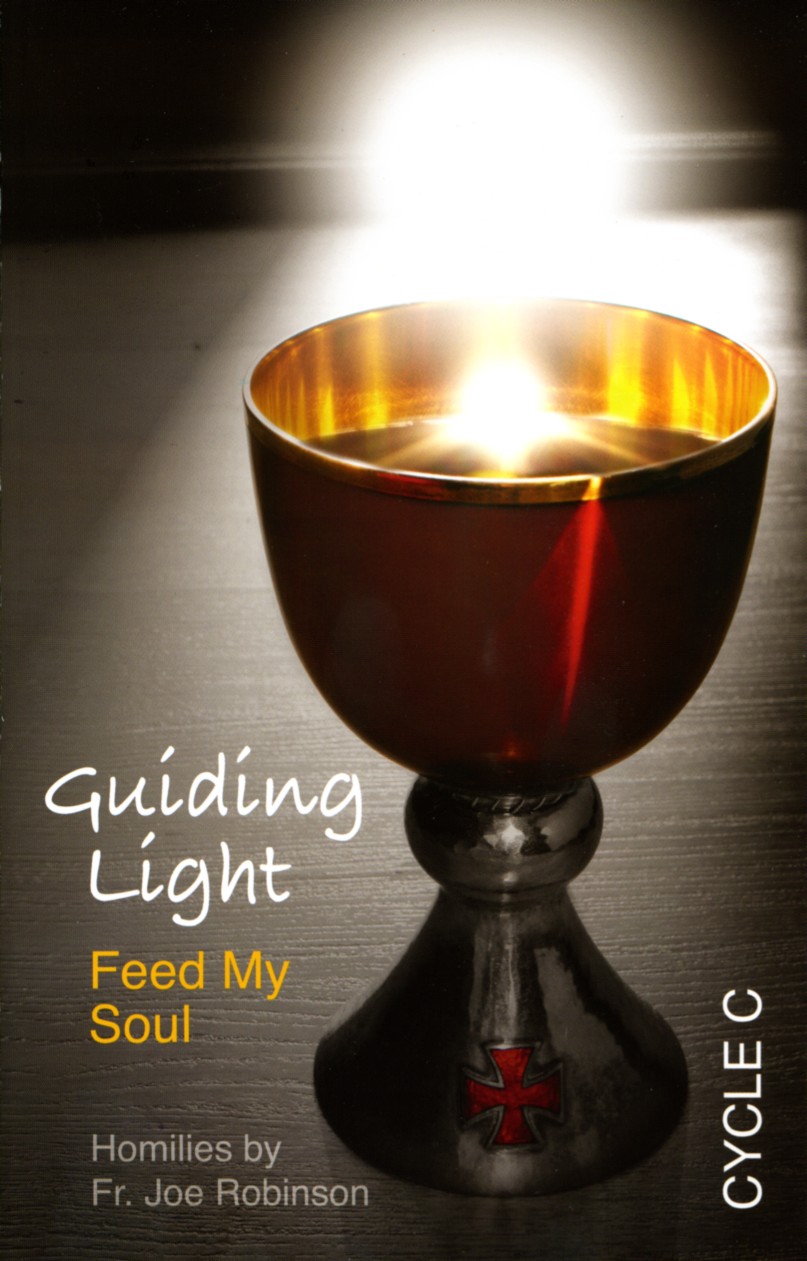
|
|
|
|
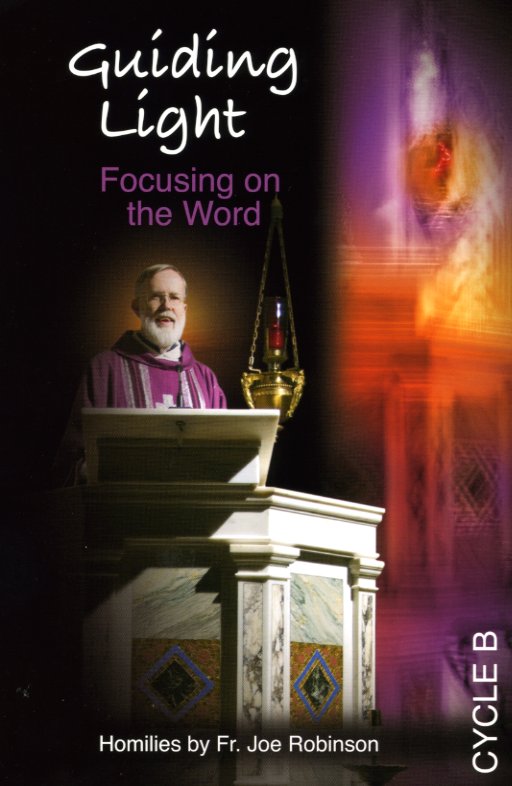
|
|
|
|
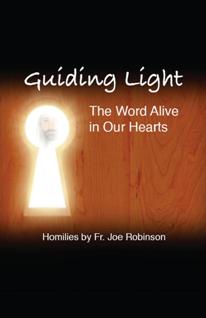
|
|
|
|
| Fr. Edward J. Carter |
|
||||||||||||||||||||||||||||||||||||||||||||||||||||||||||||||||||||||||||||||||||||
|
|||||||||||||||||||||||||||||||||||||||||||||||||||||||||||||||||||||||||||||||
|
||||||||||||||||||||||||||||||||||||||||||||||||||||||||||||||||||||||||||||||||||||||||||||||||
Get a canvas print of Mary's image
with a sliver of glass and
a little bottle of
Jesus and Mary water.The glass will be fixed behind the
back of the picture.Cost — $200.00
Also available
a cup with a Mary's image on it
Cost — $15
Call Doris
1-888-211-3041
or
1-727-725-9312
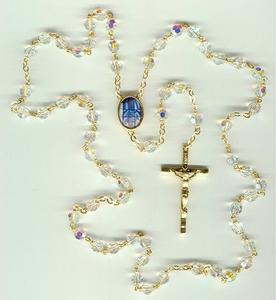
Rosaries with Mary's Image Available
Aurora Borealis Beads6mm - $30.00
8mm - $40.00
Call Doris
1-888-211-3041
or
1-727-725-9312
Statues
Sacred Heart of Jesus w/glass - 18
Our Lady-Guadalupe w/glass - 12
Limpias - 8
Immaculate Heart w/glass - 18
I Heart - Ivory w/glass - 18
Our Lady of Grace w/glass - 18
Our Lady-Mt. Carmel w/glass - 18
Our Lady of Lourdes w/glass - 18
Infant of Prague w/glass - 24
Sacred Heart of Jesus w/glass - 24
Sacred Heart -Blessing w/glass - 24
Sorrowful Mother w/glass - 24
I Heart - Ivory w/glass - 24
I Heart of Mary w/glass - 24
Our Lady of Lourdes w/glass - 24
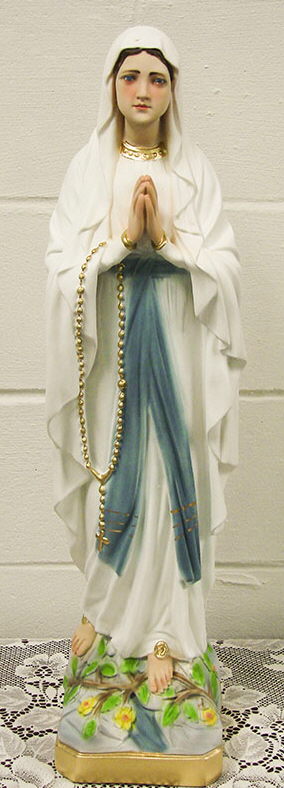
Our Lady-Guadalupe w/glass - 28
Our Lady of Grace w/glass - 24
Our Lady-Mt. Carmel w/glass - 24
St. Padre Pio
St. Joseph
St. Therese
St. Francis
St. Anthony
St. Claire
Limpias
St. Jude
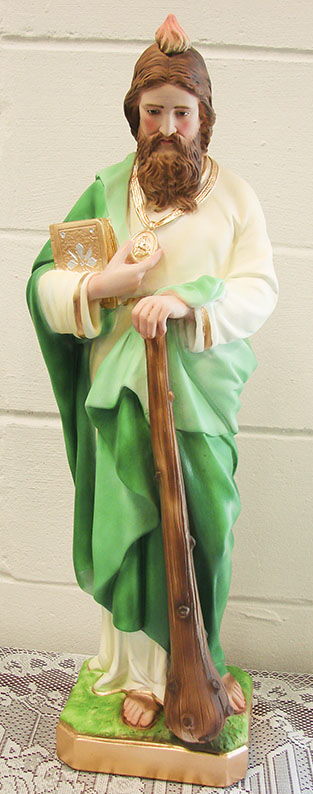
Divine Mercy
Holy Family
Angel
St. Philomena
Pieta - Marble
Pieta - Color
Holy Family
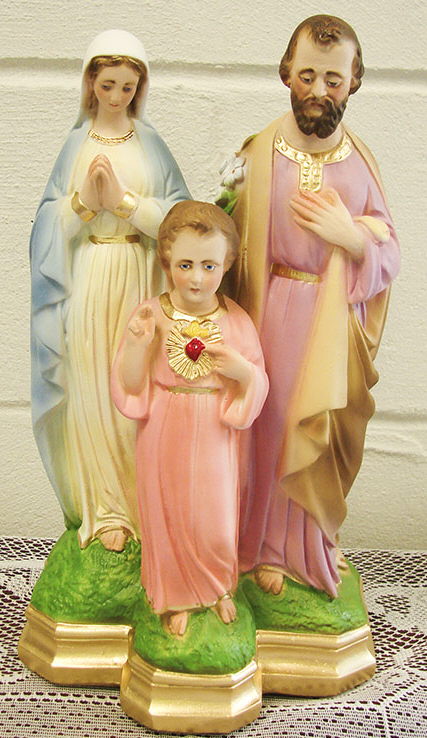
St. Anthony - 18
St. Francis - 18
St. Joseph - 18
St. Therese - 18
St. Rita - 18
St. Clare - 12
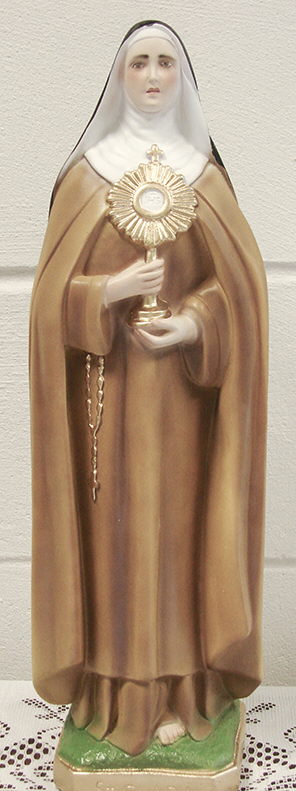
St. Rita - 12
St. Padre Pio - 12
Divine Mercy - 12
St. Michael - 11
Shepherds of Christ Ministries
P. O. Box 627
China, IN 47250
Toll free - 1-888-211-3041
Local - 1-812-273-8405
fax - 1-812-273-3182
web: www.sofc.org
e-mail: info@sofc.org
Size Price Quantity Holy Family
24"
$180
Limpias
24"
$125
St. Anthony
24"
$125
St. Claire
24"
$125
St. Francis
24"
$125
St. Joseph
24"
$125
St. Jude
24"
$125
St. Padre Pio
24"
$125
St. Therese
24"
$125
Divine Mercy 22"
$125 Angel 22"
$100 St. Philomena 20"
$100 St. Philomena 16"
$65 St. Joseph 18"
$65 St. Francis 18"
$65 St. Anthony 18"
$65 St. Rita 18"
$65 St. Therese 18"
$65 Pieta - Color 7" $75 Pieta - Marble 7' $75 Holy Family 12"
$60 St. Padre Pio - standing 12"
$100 St. Padre Pio - sitting 8"
$100 St. Michael 11"
$40 St. Rita 12"
$40 Divine Mercy
12"
$40 St. Claire 12"
$40 Limpias 8"
$25 Our Lady of Guadalupe w/glass 28"
$500 Our Lady of Mt. Carmel w/glass 24"
$500 Immaculate Heart of Mary w/glass
24"
$500 Immaculate Heart - Ivory w/glass
24"
$500 Infant of Prague w/glass
24"
$500 Our Lady of Grace w/glass
24"
$500 Our Lady of Lourdes w/glass
24"
$500 Sacred Heart of Jesus w/glass 24"
$500 Sacred Heart -Blessing w/glass 24"
$500 Sorrowful Mother w/glass
24"
$500 Immaculate Heart of Mary w/glass 18"
$300 Immaculate Heart - Ivory w/glass 18"
$300 Sacred Heart of Jesus w/glass 18"
$300 Our Lady of Lourdes w/glass 18"
$300 Our Lady of Grace w/glass 18"
$300 Our Lady of Mt. Carmel w/glass
18" $300 Our Lady of Guadalupe w/glass 12"
$200 Fatima w/glass
11"
$150 Fatima w/glass
18"
$250 Pilgrim Virgin w/glass 12"
$160 Pilgrim Virgin w/glass 15" $200 Pilgrim Virgin w/glass 18" $250 Pilgrim Virgin w/glass 27"
$450
Call for Shipping Price (1-888-211-3041)
Name
Sub-Total Address
IN Tax (7%) City
Shipping State Zip
Donation Telephone
Order Total
Call Doris
1-888-211-3041
or
1-727-725-9312
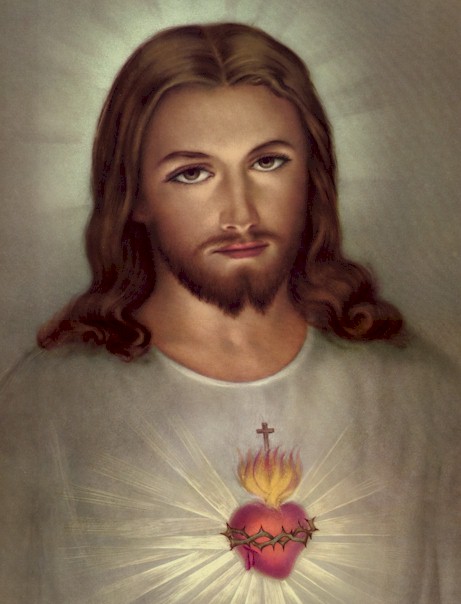
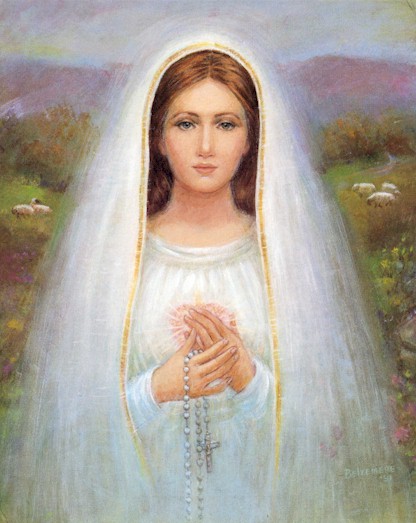
Immaculate Heart and Sacred Heart Pictures Available
with & without frames - different sizes available
Call Doris
1-888-211-3041
or
1-727-725-9312
 Copyright
© 2011 Shepherds of Christ.
Copyright
© 2011 Shepherds of Christ.
Rights for non-commercial
reproduction granted:
May be copied in its entirety, but neither re-typed nor edited.
Translations are welcome but they must be reviewed for moral and
theological accuracy by a source approved by Shepherds of Christ Ministries
before any distribution takes place. Please contact us for more information.
All scripture quotes are from the
New Jerusalem Bible, July 1990, published by Doubleday.
Revised: January 1, 2011
URL: http://www.sofc.org
Contact Information for Shepherds
of Christ
Email: info@SofC.org
Shepherds of Christ Ministries
P.O. Box 627
China, Indiana 47250
Telephone: (toll free) 1-888-211-3041 or (812) 273-8405
FAX: (812) 273-3182